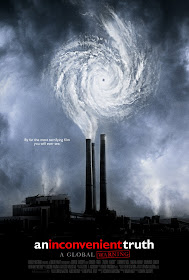Does Sydney have water conservation fatigue?: :::[SMH]
MOST Sydneysiders have made efforts to reduce their water consumption but few households believe they can do much more to save water, and many are not prepared to make changes that affect their lifestyle.The good news is that 87 per cent of Sydneysiders have acted to save water:
A major study of Sydney residents' behaviours, attitudes and intentions regarding water use raises questions about where the next great savings in household water use can be made if the current water shortage continues.
- behaviours targeted by water restrictions had changed most dramaticallyOther posts on the drought and water conservation:- Sydneysiders made changes that required little effort
- car washing
- garden watering
- 97 per cent do not flush toilets less frequently, recycle water for gardens or ensure dishwashers were filled before use
- shorter showers
- turning off taps while brushing teeth
- water restrictions had directly affected only a minority of Sydneysiders because many people did not have a garden or own a car, or did not use water on them to any great extent
- publicity about the water shortage had touched most residents60 per cent did not want water prices to be increased to encourage lower water use
- only 13 per cent of people said they had taken no action to reduce their water usage
- mostly by reducing car washing and garden watering or taking shorter showers
- high-rise flat dwellers were less likely to change their water-use patterns
Study by Professor Bill Randolph of the City Futures Research Centre at the Uni. of NSW
-
The green h20-me.
-
Drought turns Aussie knight historical searching for solutions.
-
Snowy Hydro sale scuttled by disgruntled backbenchers
- Global Warming Watch >> drought


1 comment:
hellharbour City Council is committed to reducing water consumption and also to reducing negative impacts on water quality in local waterways. The Guidelines were adopted by Council in February 2004. All new Council buildings are required to be designed using the principles of ecological sustainability. Water saving initiatives which must be considered include provision of rainwater tanks, effluent &/or grey water reuse, AAA water efficient fittings, dual flush toilets etc, and landscaping selected to minimise or negate the need for ongoing watering.
Great post!
Cheers!
Danne
Post a Comment